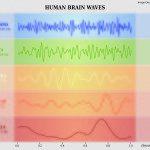This glum question has a glum answer: yes, pollution harms working memory.
Researchers in Barcelona focused on children walking to school. Working with over 1200 students, 7-10 years old, they reached a grim conclusion. Children whose walk was more polluted experienced slower development of working memory.
(The same research project had already concluded that pollution in school slows working memory development as well.)
Why teachers care
If you’ve been to a Learning & the Brain conference, you know that working memory is essential for all classroom learning. It allows students to combine pieces of information into new, meaningful ideas.
The less working memory students have, the slower they are to read, acquire math skills, compare historical figures, and learn new oboe melodies.
In other words, damaging working memory is one of the worst things we can do in schools.
What teachers should do
Of course, pollution is too big a problem for teachers and schools to solve right away. We’ll need lots of social effort–and lots of political will–to make meaningful changes.
In the short term, the study’s authors warn against one seeming solution. We might reason that walking to school exposes children to pollution, so we should encourage them to ride in cars or buses. However, the health benefits of walking are obvious and important; we should encourage–not discourage–physical activity.
In the short term, the best we can do is encourage students to walk less polluted routes: away from major highways, closer to parks and forests.
Of course, such a solution isn’t available to all students. We’ll need bigger fixes over the long term.
For the time being, knowledge of the danger is the power that we have.




